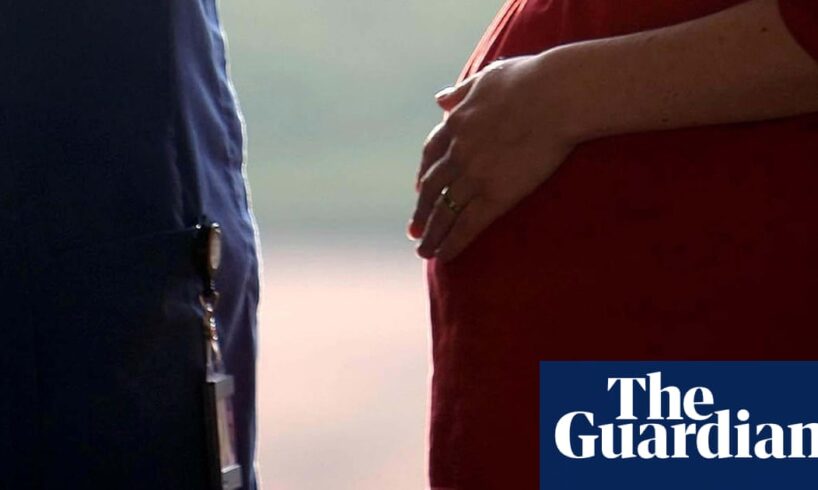
Growing numbers of women in the UK are dying during pregnancy or soon after giving birth, even though fewer babies are being born, official figures show.
While 209 maternal deaths occurred in England, Scotland, Wales and Northern Ireland during 2015-17, that rose to 254 during 2021-23, data compiled by the House of Commons library shows.
The upward trend underlines a recent acknowledgment by the heath secretary, Wes Streeting, that poor care in NHS maternity services is so widespread that it has led to “the normalisation of deaths of women and babies”.
A maternal death is defined as one that occurs while the woman is pregnant or within 42 days of the pregnancy ending, either in the delivery of a child or other event, such as a stillbirth.
“It is appalling that maternity deaths are rising even after the years of concern over the state of services that has led to so many scandals with deadly consequences,” said Jess Brown-Fuller, the Liberal Democrat health spokesperson who commissioned the library’s research.
“Families are being torn apart and unimaginable pain is being caused after years of shocking neglect so that now, even with the number of births declining, the number of deaths are rising,” added Brown-Fuller, who speaks for the party on primary care and hospitals.
The rate at which such deaths occur is also rising. The 209 deaths during 2015-17 meant that there were 9.16 deathsfor every 100,000 women giving birth. However, the 254 deaths during 2021-23 meant the death rate had by then climbed to 12.67 for every 100,000 births.
However, the 2021-23 figures were slightly down on the 275 deaths and 13.56 deaths per 100,000 maternities seen in 2020-22. The two were the highest figures in the eight years the library analysed.
Its staff collated the figures from reports by MBRRACE-UK, a longstanding official audit of maternity care quality and outcomes, which is led by the National Perinatal Epidemiology Unit at Oxford University and involves senior doctors and the Royal College of Nursing. Each of the seven reports they analysed covered a three-year period, with the figures for 2021-23 the most recent available.
Streeting last month announced the setting up of an England-wide “rapid national investigation” into what he called the “crisis” in maternity and neonatal services. It would “provide truth and accountability for impacted families and drive urgent improvements to care and safety, addressing systemic problems dating back over 15 years”.
The investigation will look into maternity care in up to 10 areas that have prompted particular concern, such as in Leeds – where a scandal is unfolding – and Sussex. It will be undertaken in conjunction with families who have suffered as a result of substandard care of mothers and newborns.
Streeting is also chairing a newly created taskforce to ensure that progress is made in tackling what he described in his speech last month as “the biggest patient safety challenge facing our country”.
skip past newsletter promotion
Our morning email breaks down the key stories of the day, telling you what’s happening and why it matters
Privacy Notice: Newsletters may contain info about charities, online ads, and content funded by outside parties. For more information see our Privacy Policy. We use Google reCaptcha to protect our website and the Google Privacy Policy and Terms of Service apply.
after newsletter promotion
Women aged 35 or over are three times more likely to die than those aged 20-24 and black women are at more than double the risk of white women of dying in pregnancy or soon after, MBRRACE-UK has found.
In recent years there have been official inquiries into maternity scandals at the Morecambe Bay, East Kent and Shrewsbury and Telford NHS trusts, and another is continuing into one in Nottingham. In addition, ministers and the NHS have published major strategies in 2016 and 2023 to overhaul care.
“We cannot allow a situation to persist where people are needlessly dying and their loved ones are left to pick up the pieces,” added Brown-Fuller. She blamed the Conservatives for letting maternity services “decay” while they were in power and challenged Streeting to take immediate “concrete steps”, including ensuring that recommendations from previous reports were acted on.
The Commons library research also found that progress on implementation in 11 of the 31 areas in which NHS England promised action in its three-year delivery plan for maternity and neonatal services in 2023 has gone backwards. They include staff responding to the woman’s concerns during her labour and birth, women receiving kind and compassionate treatment during labour and birth and receiving adequate explanations during their postnatal care.
The Department of Health and Social Care did not comment on the rise in maternal deaths. It instead highlighted Streeting’s decision to launch the investigation and promise to overhaul the quality and safety of care provided.





